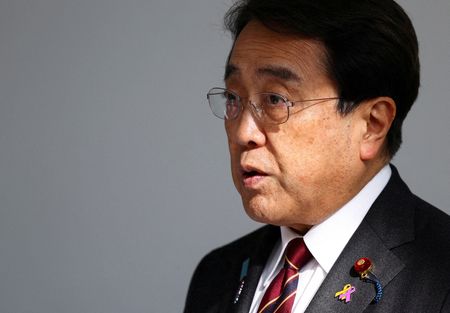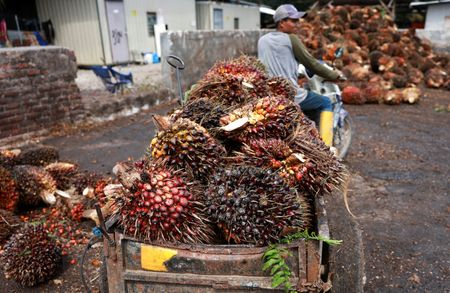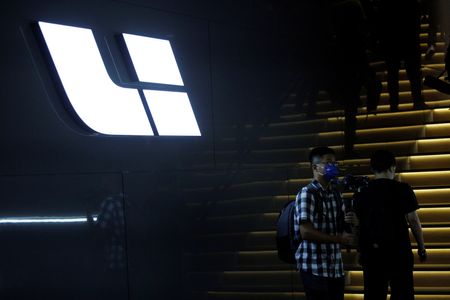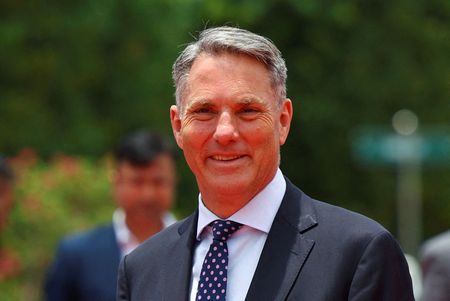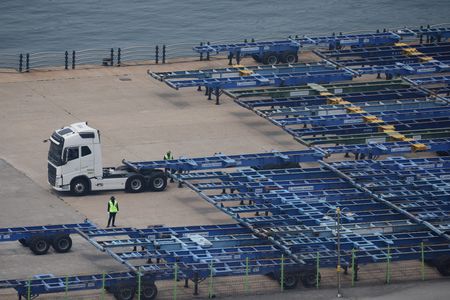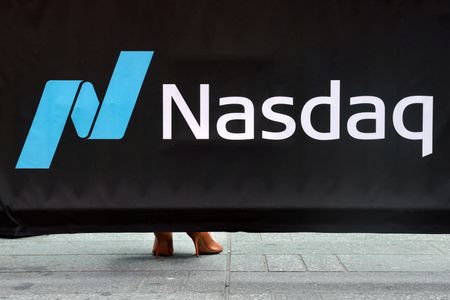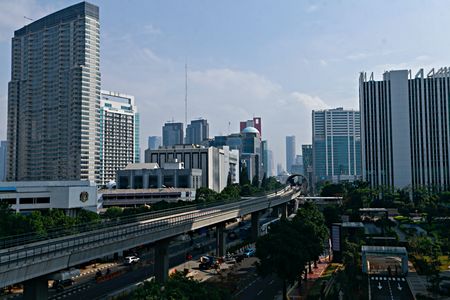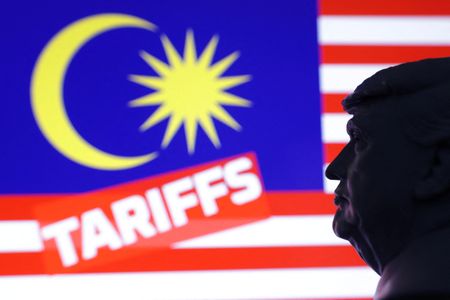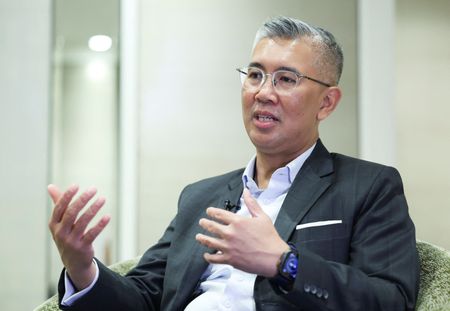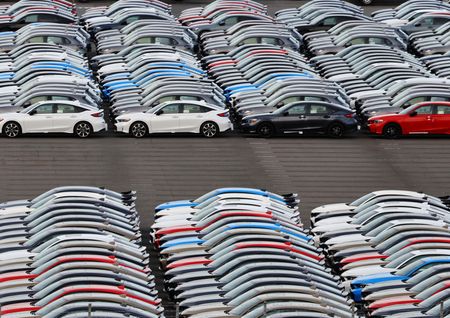By Makiko Yamazaki
TOKYO (Reuters) -Japan’s top tariff negotiator Ryosei Akazawa said he would leave for Washington on Tuesday, seeking to press for President Donald Trump’s signing of an executive order that would bring an agreed cut to tariffs on Japanese auto imports into effect.
The U.S. last month agreed in a trade deal to lower existing tariffs on Japanese car imports to 15% from levies totalling 27.5% previously, but a timeframe for the change to go into effect was not announced.
Duties on other Japanese goods will be cut to 15% from 25% from Thursday.
“We will push the United States to make sure that an executive order be signed on the agreed tariff on automobiles and automotive components as soon as possible,” Akazawa told parliament.
Referring to the problem of “stacking” where goods can be affected by multiple tariffs, Akazawa also said Japan wants to make sure goods that are already levied at more than 15% would be exempt from the additional 15% rate.
A table attached to Trump’s July 31 executive order that addressed tariff rates for many trading partners showed a “no stacking” condition applies to the European Union, while no such clarification was given for Japan.
Akazawa told parliament Japan has received reassurances from the U.S. that it would be treated the same way as the European Union regarding the condition.
He stressed that there was no misunderstanding with the United States about Japan’s $550 billion investment package agreed in the tariff deal.
“We have repeatedly explained to the U.S. that Japan will invest up to $550 billion in the form of equity, loans and guarantees” through state-owned financial institutions to jointly build supply chains critical for national security, Akazawa said. “This is what we believe is our consensus.”
Akazawa has said equity investment would account for just about 1-2% of the $550 billion.
(Reporting by Makiko Yamazaki and Mariko Katsumura; Editing by Edwina Gibbs)

